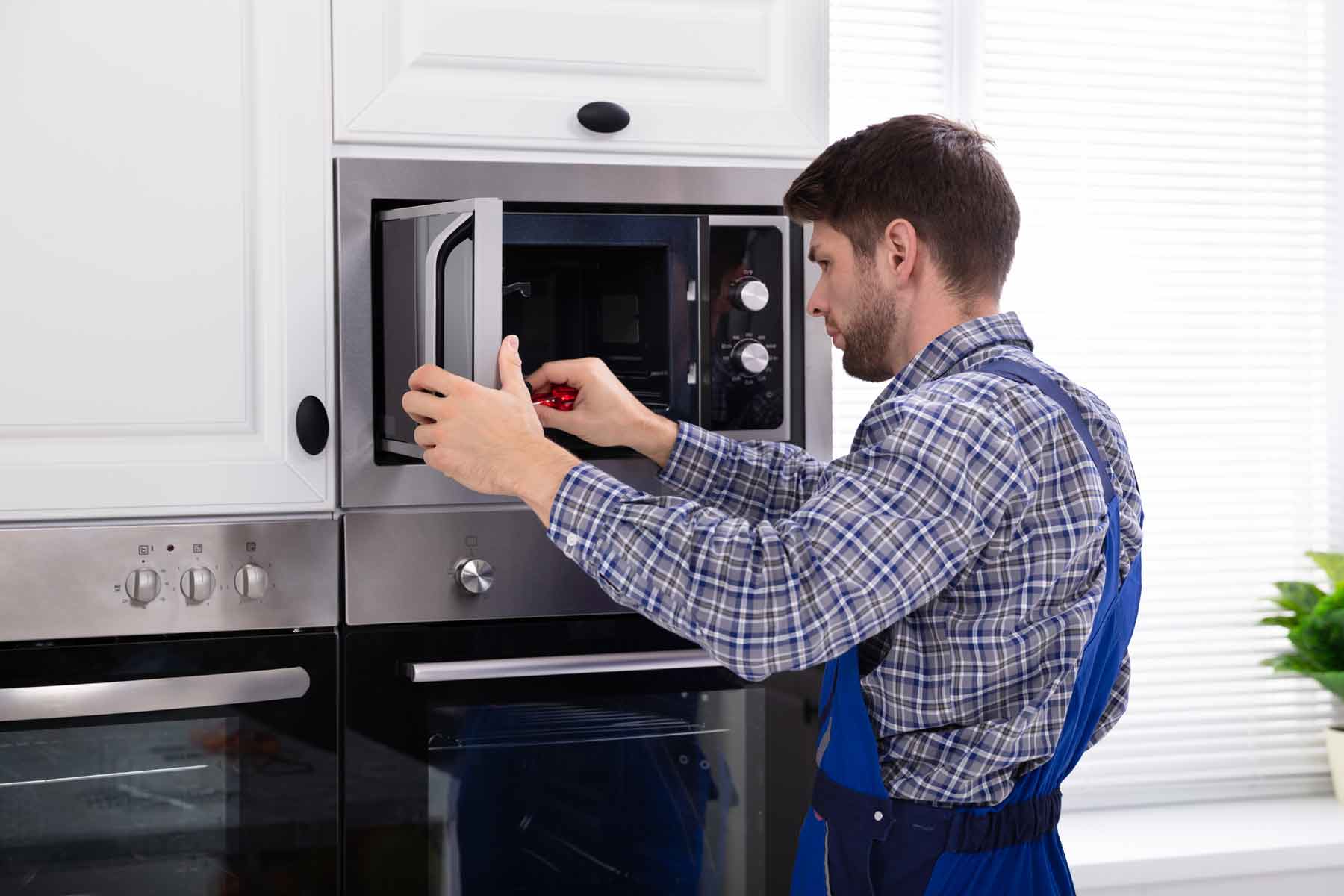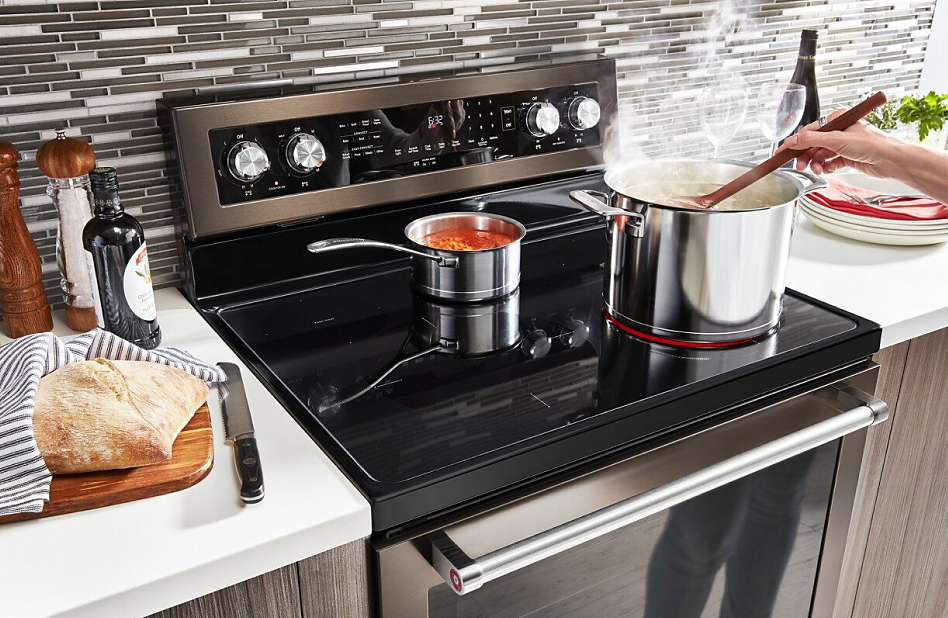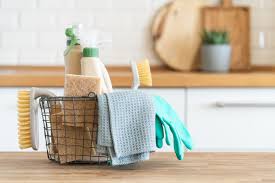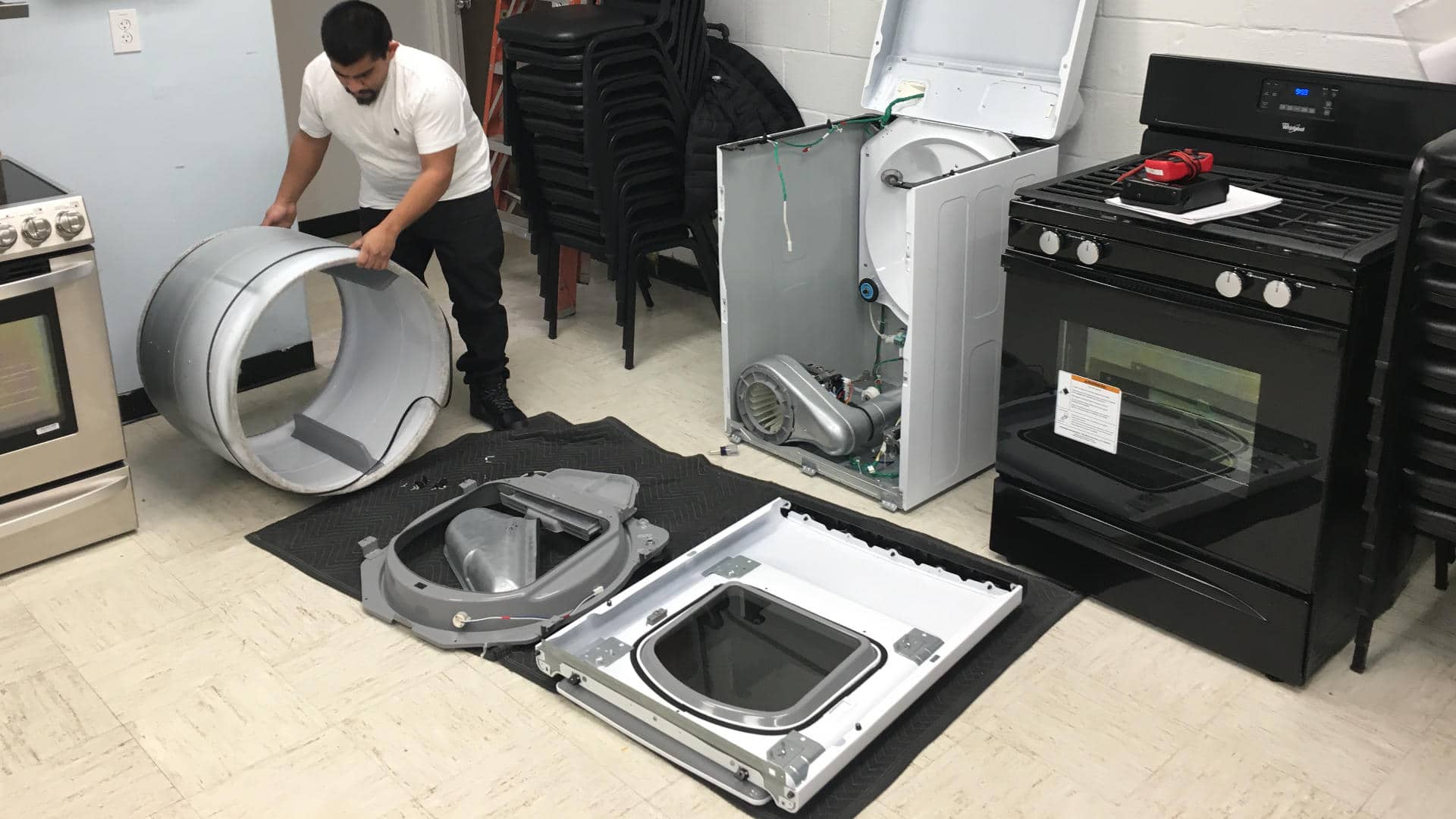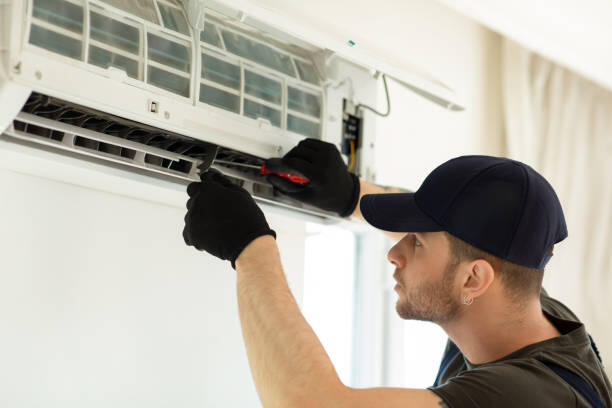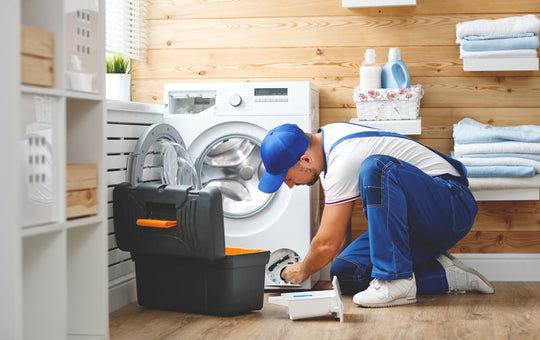Microwave Repair Guide: Common Issues and Fixes
The blog is an essential guide to ensuring the longevity and efficiency of one of the most commonly used kitchen appliances: the microwave. Microwaves are pivotal in modern culinary routines, offering quick heating and cooking capabilities. However, their frequent use also subjects them to various malfunctions and efficiency issues. Regular maintenance and understanding how to troubleshoot common problems are vital to maximizing the appliance's lifespan and functionality.
Microwave maintenance is not just about fixing problems as they arise but preventing them in the first place. Regular cleaning is the cornerstone of microwave maintenance. Food particles and grease can accumulate inside the microwave, leading to unpleasant odors, staining, and potentially more serious issues like sparking or reduced efficiency. Wiping the interior with a suitable cleaner, ensuring the turntable is washed, and keeping the vents clear of obstructions are simple yet effective practices to maintain performance and safety.
Additionally, it’s important to routinely inspect the microwave for any signs of wear or damage, particularly around the door seal and latch, as these are critical for preventing microwave radiation from escaping. A damaged seal or faulty latch necessitates prompt repair or replacement to ensure safe use.
When repair needs arise, diagnosing the issue accurately is the first step. Common problems that microwave owners might encounter include the appliance not heating properly, making unusual noises, or the turntable failing to rotate. Some of these issues can be fixed with basic troubleshooting, like checking the power source, resetting the microwave, or replacing a blown fuse.
However, not all repairs are suitable for DIY and may require professional attention, especially when dealing with complex internal components like the magnetron or high voltage capacitor. Professional technicians have the tools and expertise to diagnose and repair these problems safely and effectively.
Understanding the basics of microwave maintenance and repair empowers users to take proactive steps in caring for their appliance. By keeping it clean, monitoring for signs of wear or damage, and knowing when to call in professionals, microwave owners can ensure their appliance remains a reliable and efficient kitchen aid for years to come.
Troubleshooting Common Microwave Problems
Troubleshooting common microwave problems is crucial for maintaining its functionality and ensuring safety in use. Microwaves, being an indispensable part of modern kitchens, often face issues that can range from minor annoyances to major malfunctions requiring professional attention. Here’s a guide to identifying and resolving some of the most frequent issues:
Microwave Not Heating
One of the primary complaints with microwaves is when they stop heating. This problem could be due to a faulty magnetron, which is responsible for generating the microwave's heating energy. Another cause might be a malfunctioning high voltage capacitor or diode. These components are integral to the microwave's power supply and, if defective, can prevent the appliance from heating food. Due to the complexity and risk involved, these repairs are generally better handled by professionals.
Turntable Not Turning
The turntable is essential for even cooking and heating. If it's not spinning, the issue could be a broken drive motor or a damaged turntable guide. First, check for obstructions or debris that might be hindering the turntable’s movement. If the problem isn’t external, the motor may need replacing.
Microwave Starts then Stops
Intermittent operation can often be attributed to overheating or faulty door switches. Microwaves have thermal protectors that cut off power if the appliance overheats. Ensuring proper ventilation and checking for blocked vents can resolve this issue. Additionally, inspect the door switches, which can wear out and cause the microwave to stop functioning correctly.
Unusual Noises
Loud buzzing or rattling sounds in a microwave can indicate a variety of issues, from a loose turntable to a failing magnetron. Check if the turntable is correctly placed and functioning. If the noise persists, it could be due to a more serious internal component failure.
Control Panel Issues
If the microwave’s control panel is unresponsive, it could be an electrical problem, such as a faulty control board or issues with the power supply. Resetting the microwave by unplugging it for a few minutes can sometimes resolve this. If not, the control board might need professional servicing or replacement.
In troubleshooting common microwave problems, always prioritize safety. While some issues like cleaning and minor adjustments can be DIY tasks, problems related to electrical components and microwave generation require professional expertise to ensure safe and proper repair.
DIY Fixes for Simple Microwave Issues
DIY fixes for simple microwave issues can save time and money, provided they are done safely and correctly. Here are some common microwave problems that can often be resolved with a bit of know-how and caution:
Cleaning and Maintenance
Regular cleaning is crucial to prevent many common issues. Spills and splatters inside the microwave can absorb energy, leading to inefficiencies and odors. Wipe down the interior with a damp cloth and mild detergent, and clean the turntable regularly. Ensure the vents are clear of dust and debris to prevent overheating.
Replacing the Light Bulb
If the microwave light is out, replacing the bulb can often be a simple task. First, ensure the microwave is unplugged and cool. Access the light bulb compartment, typically located behind a panel on the side or top of the microwave. Replace the old bulb with one of the same type and wattage.
Fixing a Non-Rotating Turntable
A turntable that isn’t spinning is often due to misalignment or debris on the track. Check to make sure the turntable is correctly seated on the rotation mechanism. Clean the turntable and the base to remove any obstacles that might hinder rotation.
Door Latch Issues
If the microwave door won’t latch properly, it may not start. Check for food residue or foreign objects in the door seal and hinges. Cleaning these areas can often resolve the issue. If the latch is broken, however, it may need to be replaced.
Resetting the Microwave
Sometimes, microwaves just need a reset. If the appliance is behaving erratically, unplug it for a minute or two, then plug it back in. This can often resolve minor software glitches in the control system.
While many minor microwave issues can be fixed at home, safety should always be the top priority. Never attempt to repair electrical components or the magnetron yourself, as these require professional expertise and handling. Always consult the user manual or a professional if you’re unsure about a repair.
When to Call a Professional for Microwave Repair
Knowing when to call a professional for microwave repair is essential to ensure safety and prevent further damage to the appliance. While some issues can be resolved with DIY fixes, more complex problems require the expertise of a trained technician. Here are situations where professional help is necessary:
Magnetron Issues
The magnetron is the heart of the microwave, generating the microwaves that cook the food. If your microwave is on but not heating, the magnetron might be the culprit. Because it involves high voltage and complex replacement, magnetron repair is strictly a professional task.
Electrical Problems
Any issue related to the microwave's electrical system, including wiring problems, a tripped circuit breaker, or a blown fuse within the appliance, should be handled by a professional. Working with electrical components poses serious shock hazards and requires specific technical knowledge.
Control Panel Malfunctions
If the microwave’s control panel is unresponsive or displaying error codes that you can’t troubleshoot with a reset, it may indicate a deeper electrical issue or a failure of the control board. A professional technician can diagnose and repair these complex electronic components.
Door Seal Damages
The door seal ensures that microwaves are contained within the appliance and not leaking out. If you suspect the seal is damaged or the door isn’t closing properly, it’s crucial to get it inspected and repaired by a professional to avoid radiation exposure.
Unusual Noises or Smells
Strange noises, like loud buzzing or grinding, or unusual smells coming from the microwave, could indicate serious problems that need immediate attention. These symptoms can signal failing components or even potential fire hazards.
In summary, while regular cleaning and minor adjustments can be done personally, significant repairs, especially those involving the microwave’s core functions and safety features, should be entrusted to a professional. This ensures that the repair is done safely and effectively, maintaining the microwave's performance and extending its lifespan.
Extending the Life of Your Microwave: Maintenance Tips
Extending the life of your microwave involves regular maintenance and careful usage to ensure it remains in good working order for as long as possible. Here are some maintenance tips that can help maximize the lifespan of your microwave:
Keep it Clean
Regular cleaning is crucial to prevent the build-up of grease and food particles that can absorb microwaves and lead to inefficiency and potential fire hazards. Wipe down the interior with a mild detergent and water after use, and make sure to clean the exterior and vent openings to prevent overheating.
Use it Properly
Avoid placing metal objects or materials inside the microwave, as they can cause sparks and damage the interior. Also, ensure that the microwave door is closed gently to prevent damage to the latch mechanism, which is vital for safety and proper operation.
Check the Door Seal
The door seal is essential for keeping the microwaves contained. Regularly inspect the seal for any signs of wear or damage, and ensure it's always clean to prevent leakage. If the seal is damaged, it should be replaced immediately by a professional.
Don’t Overload
Operating the microwave when it's empty or overloading it can cause damage. Always follow the manufacturer’s guidelines for appropriate usage to avoid putting undue stress on the appliance.
Regular Inspections
Perform routine checks for any signs of malfunction, such as unusual noises, a non-spinning turntable, or inconsistent heating. Early detection of issues can prevent more severe problems later on.
Use Pre-Set Cooking Times
Take advantage of pre-set cooking times to prevent overcooking or overheating, which can stress the microwave’s components.
By following these maintenance tips, you can help extend the life of your microwave, ensuring it continues to function efficiently and safely for many years. Regular care and proper use are key to getting the most out of this indispensable kitchen appliance.
